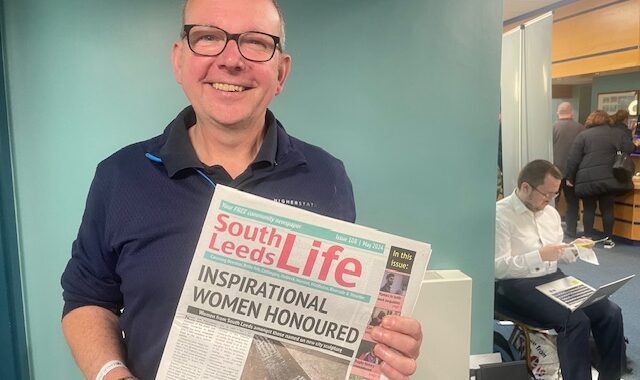On 23 October, the National Assembly for Wales hosts a hyperlocal News day. The event, hosted in partnership  with Cardiff University’s Centre for Community Journalism, aims to bring hyperlocal and community journalists into the Senedd to enable them to report the work of the National Assembly that is relevant to their locality and audiences. Here the Assembly’s Presiding Officer, Dame Rosemary Butler AM explains why it is so important that Wales’s law-making body directly engages with these new digital platforms.
with Cardiff University’s Centre for Community Journalism, aims to bring hyperlocal and community journalists into the Senedd to enable them to report the work of the National Assembly that is relevant to their locality and audiences. Here the Assembly’s Presiding Officer, Dame Rosemary Butler AM explains why it is so important that Wales’s law-making body directly engages with these new digital platforms.
In October 2012 I gave a speech to the Royal Television Society’s annual lecture in Wales. In that speech, I first used the phrase “Democratic Deficit” to describe the gap in coverage that Welsh people face in the newspapers they read and the news programmes they watch.
By “Democratic Deficit” I mean who is relaying, or perhaps more importantly, who will be relaying the work of the National Assembly to the people of Wales in the future, and, of course, performing that crucial role of holding the decision-makers here in Cardiff Bay to account?
We have a UK Media, both broadcasters and print, which fails to report the huge differences in approach to public policy in devolved fields such as health and education. It means their substantial Welsh audiences often get information that does not apply to them.
Research by Professor Anthony King and Cardiff University’s School of Journalism led by Prof Justin Lewis highlighted the fact that some of our leading UK broadcasters often default to an Anglo-centric position. A position which promotes policy issues affecting only England as though they apply to the whole of the UK.
Professor King’s original report was published in 2008, and at the RTS annual lecture in 2012 he noted that despite efforts by some broadcasters, the problem persists.
BBC Wales and ITV Wales do a great job in covering Welsh public life, but the fact remains that many people in Wales prefer to listen to, or view, network news platforms and programmes which ignore any Welsh perspective.
But in fairness to the BBC they are the least worst offender, particularly when you look at the record of the commercial broadcasters in terms of coverage of Wales and Welsh issues.
And it is not just the broadcasters who are at fault!
Depending on which source you believe, between 600,000 and one million people in Wales read a UK newspaper every day, and that’s not to mention the numbers who access UK media websites and mobile apps. Again these organisations fail to portray the different policy approaches taking place in Wales.
The problem is further compounded by the financial pressures on our indigenous Welsh national and regional press, which leaves many unable to resource comprehensive coverage of Assembly news.
In May 2013, the Assembly organised an interesting session with a panel of leading UK Journalists including Kevin Maguire, Peter Riddell and Peter Knowles – which was chaired by former head of global news at the BBC, Richard Sambrook.
Their response to the democratic deficit was disappointing to say the least and offered little hope of a solution. The Assembly will of course continue to challenge UK media outlets to properly report the work we do at the Senedd to their Welsh audiences – and those beyond Wales.
It was another sessions we held with Wales’s hyperlocal digital and community journalists that perhaps offered more hope and scope for action.
As a result much of the Assembly’s focus is on what support can be provided to the emerging digital platforms in covering the work of the Assembly.
We are:
- working with digital and hyperlocal media, and partner organisations, to create a journalism hub in the Senedd that could provide content to these new digital channels;
- making it easier to report by providing better communications facilities on the Senedd estate;
- working with hyperlocal and community journalists to make the Assembly’s data more open and accessible;
- ensuring that Assembly Members are fully informed about how best to use the communication tools now available in this digital age;
It begins with the Hyperlocal News Day which, in partnership with Cardiff University’s Centre for Community Journalism, aims get the ball rolling by inviting community journalists into the Senedd and ask them how we can improve the delivery of our content and information so that it is easier for them to report the Assembly’s work.




